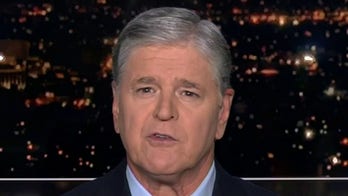In the wake of backlash over its response to the Israel-Hamas war, Harvard University is reconsidering its practice of issuing official statements on controversial political issues.

Harvard University is taking steps to distance itself from political statements, following a series of controversies surrounding its response to the Israel-Hamas war last year.
An "Institutional Voice" faculty task force has recommended that the school refrain from making official statements about public matters that do not directly affect its "core function." The report acknowledges that there will be "close cases" where reasonable people may disagree about whether a given issue falls within this category, but emphasizes that the university should err on the side of caution.

These guidelines would likely apply to administrators, deans, board members, and faculty councils. However, the report stresses that individuals within the university are free to make public statements on issues of their own choosing, as long as the school makes it clear that these statements do not represent the official position of Harvard.
The task force's report was formed after Harvard faced criticism for its initial response to the Israel-Hamas war. The school's initial statement offered condolences for the "death and destruction" but did not explicitly condemn Hamas. After over two dozen student groups signed a joint statement condemning Israel as "entirely responsible" for the attacks, Harvard was forced to release an additional statement condemning the "terrorist atrocities perpetrated by Hamas."

Then-Harvard President Claudine Gay's handling of the controversy further inflamed tensions. She was accused of plagiarism and of suggesting that calls for the genocide of Jews might not violate campus rules, depending on the "context." Gay resigned from her position in June.
The new policy recommendations are intended to avoid similar controversies in the future. By restricting official statements to matters that directly affect the university's core function, Harvard aims to maintain a more neutral stance on political issues.

The move towards neutrality has drawn mixed reactions. Some faculty members have expressed concern that it will stifle academic freedom and prevent the university from taking a stand on important social issues. Others believe that it is necessary to protect the university's reputation and avoid alienating students and donors.
The "Institutional Voice" co-chair, Noah Feldman, has emphasized that the report does not recommend that the university remain completely silent on political issues. It simply suggests that the school should be more cautious about making official statements and should clarify that individual statements do not represent the official position of Harvard.
Feldman also stressed that the university can still take positions on issues that directly involve the university, such as divestment. However, the report does not dictate a specific answer on this issue.
Harvard University's decision to step back from political statements is part of a broader trend in higher education. In recent years, several other universities have adopted similar policies, as they seek to avoid becoming embroiled in divisive political debates.
It remains to be seen whether Harvard's new policy will be successful in avoiding further controversies. However, it is clear that the university is facing increasing pressure to remain neutral on political issues and to avoid alienating students and donors.










